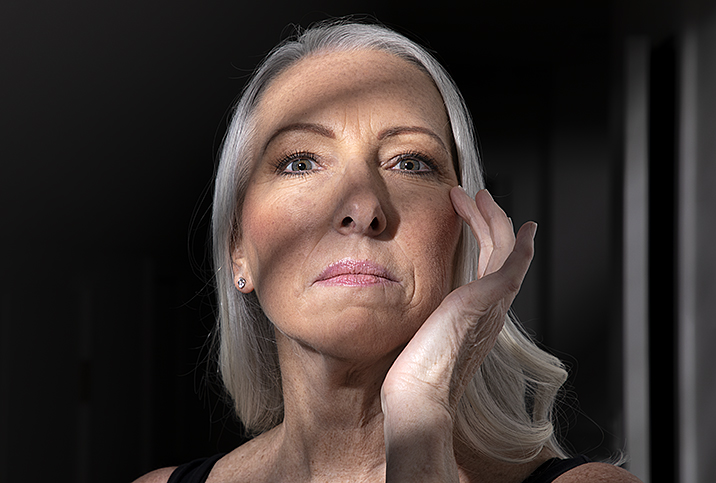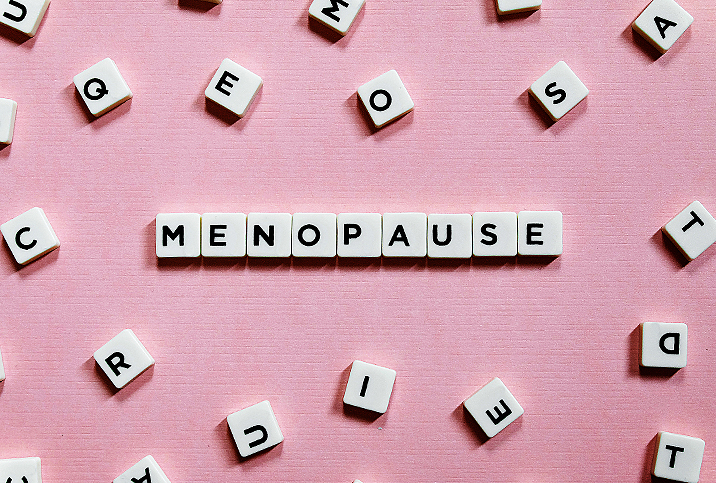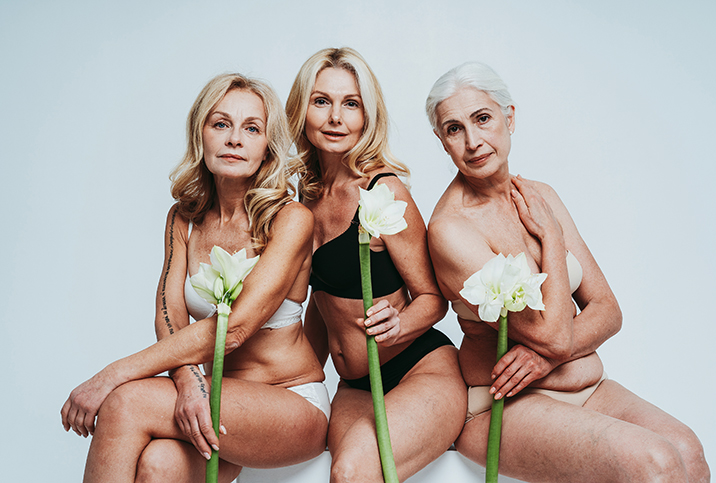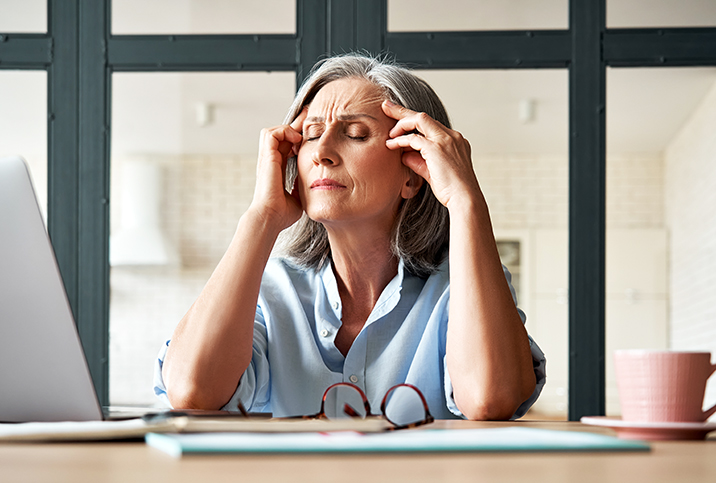Menopause Can Cause Dry Eye Syndrome, But There Are Easy Remedies

During the menopause transition, a woman's body produces less estrogen, progesterone and androgen, causing a variety of irritating conditions, such as sweating, insomnia and hot flashes—but one symptom you may not know about is dry eye syndrome (keratoconjunctivitis sicca).
The most common ophthalmic complaint in the United States, this condition affects as many as 16.4 million people. More women than men get it, in part due to hormonal influences. It's estimated that 61 percent of perimenopausal and postmenopausal women will experience dry eye syndrome.
Read on to learn more about why menopausal women often experience this condition and what treatments are available.
Your eyes need to stay wet
Tears protect your eyes from infection and help you see clearly. Eyes stay wet when our tear film comprises an optimal combination of oil, water and mucous. It's the oil on the outer layer of the tear film that keeps tears from drying out too quickly. Oil is produced by the meibomian glands along the lash line of the eyelids.
If your eyes are red, itchy or burning, it could be because they aren't covered by a proper tear film. Eyelids may appear swollen and feel "gritty," as if there's something under there scratching the eye's surface. Dry eyes can make it impossible to tolerate wearing contact lenses.
When your eyes don't produce enough tears, they're not adequately protected and this can put you at risk for eye infections. In severe cases, dry eyes can cause painful abrasions or inflammation of the cornea. If this is left untreated, you run the risk of developing a corneal ulcer and long-term vision problems.
Why menopause can cause dry eye syndrome
Getting older, in general, increases the risk of dry eyes, regardless of sex, because tear production diminishes as you age. Anyone over 50 is at risk for dry eye syndrome, but studies have found postmenopausal women are particularly prone to the condition.
"The lubricating glands of eyes have receptors for estrogen," explained Sara Twogood, M.D., a board-certified OB-GYN in Los Angeles and co-founder of Female Health Education and the online magazine Female Health Collective." During menopause, estrogen levels drop, which can contribute to dry eyes."
Researchers have also discovered that the decrease in androgens as we age increases the risk of dry eye syndrome for both women and men. Women have less androgens to begin with and losing even more may be one reason why they suffer from dry eye syndrome at higher rates than men.
"As people get older, they often take medications for various complaints, too," Twogood added. "Many medications have a side effect of dry eyes (like diuretics, some antidepressants, or anticholinergics used for bladder issues)."
Menopausal hormone therapy (MHT) may contribute to dry eyes as well. A 2016 study published in the journal Menopause with 360 postmenopausal participants found that prolonged use of MHT increases the risk of dry eye syndrome. Previous, smaller studies found the opposite to be true and concluded MHT alleviates dry eyes. More research is needed in this area.
Treatment for dry eyes
Mai-Anh Tran, O.D., owner of iVision Complete Eye Care in Houston, Texas, stressed the importance of first determining the underlying cause of dry eyes.
"In the majority of cases," she explained, "the problem can be attributed to allergies, advanced age or prolonged exposure to screen time, particularly in younger people."
There are several treatment options available for dry eye syndrome, regardless of the cause.
Over-the-counter (OTC)
For patients who occasionally experience dry eyes, Tran recommends OTC remedies, such as artificial tears or omega-3 fatty acid supplements. Some brands of artificial tears also carry gel-drop versions, which can offer even more relief.
Prescription
The next level up, for chronic or severe dry eyes, is prescription eye drops which are formulated to help increase production of natural tears. The benefit should be noticeable after about six months of regular use.
Surgery
Finally, if eye drops haven't resolved the problem, Tran refers patients to an ophthalmologist to explore surgical options. One common surgery for dry eyes is the insertion of punctal plugs into the tear ducts of the eyelid to prevent tears from draining out of the eyes.
Discuss your concerns with your optometrist
Dry eye syndrome is just one item on a long list of conditions perimenopausal and postmenopausal women may experience. Fortunately, there are many options available for identifying and correcting this particular problem. If your eyes are plagued by redness, itching or a gritty feeling that won't go away, get checked out by an optometrist and know that relief is close at hand.


















